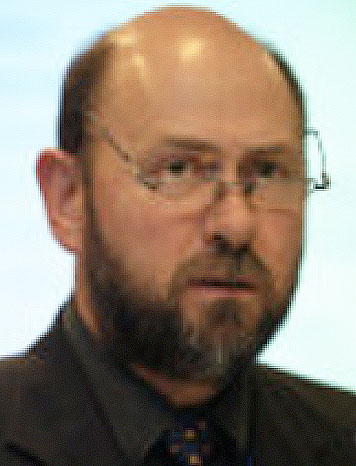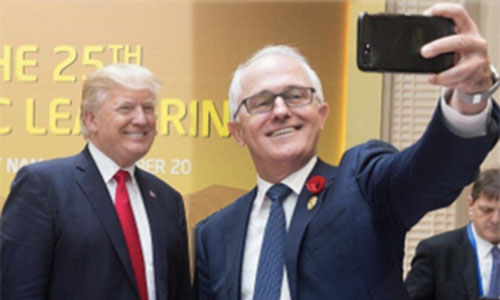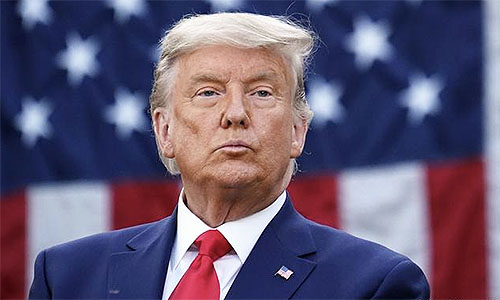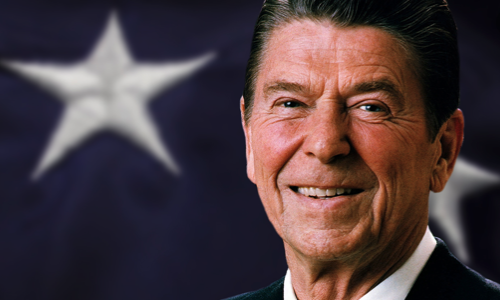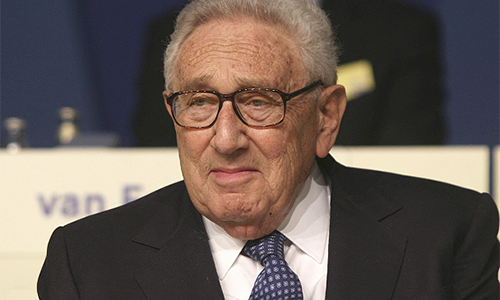
by PAUL COLLITS – IT ISN’T just English batsmen scoring centuries these days. The other week, the redoubtable Heinz Alfred (aka Henry) Kissinger turned one hundred.
Kissinger is known for many things. His escape from Nazi Germany. His prolific scholarship (his latest book, Leadership, was published only last year, following a book on AI published in 2021).
- Not everyone who can lay legitimate claim to have been an “elder statesman” for nearly half a century.
- Kissinger has been, without doubt, a champion of the new world order.
- Perhaps there is less to the man than meets the eye.
Not to mention his partnership with Nixon. His survival of Watergate reputation intact. His late-Vietnam era shuttle diplomacy. His not unrelated Nobel Peace Prize. His easy (slippery?) transition from South East Asian hard man to champion of détente with the USSR.
For conspiracy researchers, his prominent place in thinking and activity related to the “new world order”. As well as his strong and consistent advocacy of depopulation (aka eugenics), especially in less developed countries. Last but by no means least, for some, his alleged war crimes.
EXECUTING
A decidedly mixed bag, then. For many, he is “evil”. For others, a genius and a force for good, or if that is a stretch, an unrelenting force for pursuing American interests and executing American priorities.
It is not everyone who can lay legitimate claim to have been an “elder statesman” for nearly half a century.
He has been showered with accolades. He was thus introduced at one Council on Foreign Relations event in 2020: “As the cliché goes, Henry is truly the individual who does not need an introduction.”
True enough.
His host continued: “He was this country’s fifty-sixth Secretary of State. He was the assistant to the president for national security affairs. He’s a recipient of the Nobel Peace Prize, the Presidential Medal of Freedom.
“I would describe him as the preeminent scholar-practitioner of his era. There are great scholars. There are great practitioners. Henry Kissinger, I believe, again, is the greatest combination of the two in modern times.”
One of several biographers – indeed the authorised biographer – and one of the world’s best-known twenty-first century historians, Niall Ferguson, states: “It’s Henry Kissinger’s world. We just live in it.”
That’s debatable, as Ferguson’s unforgiving Twitter commenters opined.
The Guardian reviewed Volume One of Ferguson’s biography – yes, we still await Volume Two –in 2015: “Henry Kissinger. That ‘very name’, Niall Ferguson writes in the first volume of his biography of the former US national security adviser and Secretary of State, ‘hit some neuralgic spot in the collective brain of a generation’. Eric Idle mocked him, the novelist Joseph Heller described him an ‘odious shlump who made war gladly’ and Christopher Hitchens pronounced him guilty of crimes against humanity.
“Such ‘vitriol’ is ‘puzzling’, Ferguson says. Many American policymakers can ‘just as easily be accused of war crimes’, but it is Kissinger whom critics single out. The journalist William Shawcross blamed Kissinger’s bombing of Cambodia from 1969 to 1973 for giving rise to the genocidal Pol Pot. Recently, Princeton’s Gary Bass accused him of expediting Pakistan’s 1971 genocide in Bangladesh.
“Ferguson doesn’t dispute Kissinger’s responsibility for such atrocities, but suggests, in his introduction, that they shouldn’t bear on how we assess his legacy.”
Clearly, Ferguson thought that Kissinger needed rescuing. Another Guardian writer states: “The most crucial of Ferguson’s historical revisions concerns the claim, first made by Seymour Hersh in his 1983 book The Price of Power, that Kissinger leaked classified information to the Nixon campaign about the Johnson administration’s 1968 Paris peace talks with North Vietnam. This, other historians have argued, allowed Nixon and his advisers to persuade South Vietnam into pulling out of the talks on the promise they would get a better deal from a Republican president. But it led to a useless prolonging of the war for another five years.”
A serious claim. Ferguson is often demonised by the Left. No surprises there, for one who has warmly endorsed Nigel Biggar’s recent book Colonialism. Ferguson’s work on Kissinger has been called “hagiography”.
Ferguson replies to his critics (and Kissinger’s): “People get attached to certain narratives. And the narrative that Henry Kissinger is the most evil American that ever lived is a sort of important narrative for people, particularly people who were here in 1968 and came up in the 1970s, opposing everything that Nixon did. So if you challenge those narratives, it’s not surprising that people react sometimes quite strongly.”
Kissinger’s partnership with Richard Nixon has been written about extensively, with the excellent Robert Dallek’s book, Partners in Power, perhaps the best known.
RESIGNATION
There is no doubt they were close. Columbia magazine notes: “ ‘History,’ Henry Kissinger told Richard Nixon on the eve of the president’s resignation in August 1974, ‘will treat you more kindly than your contemporaries have.’ He has been proven correct. When Nixon died in 1994, his achievements, particularly in foreign policy, dominated the historical assessments of the only US president to have resigned.”
“The opposite has been the case with Kissinger. Journalists fawned over him when he was in office. In 1973, he was awarded the Nobel Peace Prize for negotiating the imperfect end to the Vietnam War, even as Nixon was squirming in the purgatory of Watergate. But over time, ‘Kissinger the war criminal’ came to replace the image of a globe-trotting super-diplomat.”
US historian Robert Dallek thought Kissinger’s role in the Nixon Administration so central that he dubbed him “co-president” with Nixon.
Kissinger was front and centre with Nixon’s rapprochement with China, as but one example, a rapprochement which paved the way for the world’s subsequent economic suicide before China’s might.
A couple of Kissinger’s former Nixon Administration colleagues were not flattering. John Ehrlichman called him nervous, impetuous, neurotic, caring desperately what people wrote and said about him, prone to “intellectual showboating”. Devastated by press attacks on him. Bill Rogers was even less flattering: “Machiavellian, deceitful, egotistical, arrogant and insulting”.
(Both quotes are from Dallek’s book).
The late Christopher Hitchens was no mate of Henry’s. Hitch led the case for the war crimes prosecution, ironically, perhaps, for a passionate and surprising (Leftist) supporter of Bush 43’s foreign adventures in the Middle East, in all their ghastliness.
Hitchens’ main pitch was in a 2001 book, The Trial of Henry Kissinger. It was Hitchens’ contention that Kissinger had blood on his hands, and just about everywhere else.
So, a war criminal? Or at least a persistently, perhaps credibly, accused war criminal?
Then we come to the real action of more current import, in these COVID times.
Kissinger has been, without doubt, a champion of the new world order. A life member of the club. An activist contributor to all the key organisations involved in the globalist movement. The Council on Foreign Relations (CoFR). The Bilderberg Group. The Trilateral Commission. And, as we shall see, the World Economic Forum.
The American writer James Perloff has noted that the CoFR, founded in the 1920s following the creation of the League of Nations, has produced 21 US Defence Secretaries, 19 Treasury Secretaries, 18 Secretaries of State and 16 CIA Directors. Not a bad record.
Talk about “penetrating zee cabinets”. Kissinger, of course, was one. This is the US foreign policy establishment at play. The oligarchy in action.
ICONS
The CoFR was driven early on by Woodrow Wilson and John D Rockefeller Jr. Yes, the first of many corporate icons weirdly (or not) interested deeply in international relations.
John D Jr was the Standard Oil man. His son David, who died in 2017, was an investment banker (Chase Manhattan) and, yes, a Director of the CoFR in the 1940s. John D Jr also had an interest in vaccines and in medical research in China!
Within his lifetime, Rockefeller helped launch the field of biomedical research, funding scientific investigations that resulted in vaccines for things like meningitis and yellow fever. He revolutionised medical training in the United States, and built China’s first proper medical school.
The legendary (or notorious, depending on your viewpoint) British conspiracy theorist, David Icke, has called Kissinger “the lead vampire globalist”. He has been, of course, a mentor to Klaus Schwab and was the creator of the World Economic Forum.
US media professor Mark Crispin Miller has noted: “The WEF did not spring from the forehead of Klaus Schwab, but was hatched by Henry Kissinger, John Kenneth Galbraith and Herman Kahn, with CIA funding.”
There is no doubt that Kissinger was always, and remains, a Davos Man.
As investigative journalist Johnny Vedmore has said: “If you have a decent knowledge of Klaus Schwab’s history, you will know that he attended Harvard in the 1960s where he would meet then-Professor Henry A Kissinger, a man with whom Schwab would form a lifelong friendship.
“But, as with most information from the annals of the World Economic Forum’s history books, what you’ve been told is not the full story. In fact, Kissinger would recruit Schwab at the International seminar at Harvard, which had been funded by the US Central Intelligence Agency. Although this funding was exposed the year in which Klaus Schwab left Harvard, the connection has gone largely unnoticed – until now.
“My research indicates that the World Economic Forum is not a European creation. In reality, it is instead an operation which emanates from the public policy grandees of the Kennedy, Johnson and Nixonian eras of American politics; all of whom had ties to the Council on Foreign Relations and the associated ‘Round Table’ Movement, with a supporting role played by the Central Intelligence Agency.”
In other words, the Deep State was up to its armpits in the emergence of the WEF.
Related to Kissinger’s WEFism are his notorious (but widely shared) views on depopulation. The oft-quoted source for Kissinger’s views is a 1974 report he compiled for the US National Security Council.
According to Pride News (yes, this is the source): “Although President Nixon remained quiet, his Secretary of State and former national security advisor, Dr Henry Kissinger, accorded the population issue the highest priority. Under Kissinger’s aegis, the National Security Council submitted the so-called National Security Study Memorandum 200 to the President in 1974.”
UNTRUSTWORTHY
Kissinger has had all sorts of quotes attributed to him. Here is one very ugly one attributed to him and “fact-checked” by Reuters, an eminently untrustworthy source of news and part of the establishment’s fact-checker industrial complex:
One post reads: “Kissinger Quote from a speech to the WHO Council on Eugenics, February 25, 2009: ‘Once the herd accepts mandatory vaccinations, it’s game over. They will accept anything – forcible blood or organ donation – ‘for the greater good’. We can genetically modify children and sterilise them – ‘for the greater good’. Control sheep minds and you control the herd. Vaccine makers stand to make billions. And many of you in this room are investors. It’s a big win-win. We thin out the herd and the herd pays us for extermination services…’ ”
Whether he said it or not, it is highly likely he believes either some or all of it. Extermination services, indeed.
UK film producer Robin Monotti speaks to the COVID vaccines question that dare not – in official circles – speak its name, and, surprise, surprise, Henry’s name pops up: “As the adverse reaction injection deaths reported are in the region of 1-10 per cent of the actual numbers, and as the reported deaths following COVID injections across the UK, EU & US are more than 40,000, then it follows that the theory of depopulation via injections is no longer a conspiracy theory, but an evidence based fact.
“Whether this injection depopulation is intentional or collateral damage to the project of full financial control is a different question we can still leave hanging, however the Kissinger Report of 1974 speaks clearly.”
The National Security Council Report is there in black and white.
It states, for example: “… a growing number of experts believe that the population situation is already more serious and less amenable to solution through voluntary measures than is generally accepted. It holds that, to prevent even more widespread food shortage and other demographic catastrophes than are generally anticipated, even stronger measures are required and some fundamental, very difficult moral issues need to be addressed.”
RESET
There is little doubt that Kissinger, like Bill Gates and the rest of them, is a rock-solid believer in mass sterilisation, the preventing lives from being lived, in the cause of what he and his globalist cohort see as “sustainable” global population.
It is, of course, ironic, that one who has had a hundred years on the planet would seek to deny life to those who, as a result of his favoured policies, will get none.
It is also ironic that so many of those who favour depopulation and who happen to be tech titans and corporatist globals are totally obsessed with the longevity of their own lives, and go to considerable lengths to achieve this. Douglas Rushkoff’s 2022 book, Survival of the Richest, tell some spooky tales, indeed, on this issue.
So, what might one make of all this?
In conclusion, perhaps one should be wary of embracing one who could say (courtesy of Wikileaks): “The illegal we do immediately. The unconstitutional takes a little longer.” (from March 10, 1975 meeting with Turkish foreign minister Melih Esenbel in Ankara, Turkey)
It all helps, doing whatever-it-takes-wise, if you feel unconstrained by principle and morality in international affairs.
This is both strength and weakness in the “hyper-realist” take on geopolitics. One of Kissinger’s observers suggested “he believed in nothing”. This was once the very boast of the fictional Sir Humphrey Appleby.
And yes, idealism in foreign affairs can go haywire as well. Just look at the massive cost in lives and treasure of the neocons’ obsession with exporting democracy, so as to “fight terrorism over there”. Kissinger was no neocon. He has been a man of contradictions, though.
The so-called warmonger seen by his many critics as evidenced by his (aforementioned) slipperiness in relation to South East Asia (the Cambodian war crime question) transmogrified into “détente” with the USSR a few short years later.
(This détente was despised by those on the Right, such as the Goldwater conservatives and the emerging Reaganites, who, in relation to the Cold War, held the view that, in the Cold War, “we win”).
CATASTROPHIC
For my money, however, the greatest contradiction about Kissinger has been his cognitive dissonance, his simultaneously holding to realism in foreign affairs and his WEF globalism, the most insane and potentially catastrophic utopianism of our age.
Barry Gewen, in his excellent 2020 book, The Inevitability of Tragedy: Henry Kissinger and His World, quotes the nineteenth century master-diplomat, Talleyrand, who once said: “It was worse than a crime. It was a blunder.”
He quoted Talleyrand with Kissinger in mind. For those who seek at least some evidence of moral compass in our public officials, something now all the more pertinent in the era of COVID regimes and billionaire attempts to drive global governance, this is chilling stuff.
“Situational, pragmatic ethics” is another description of Kissinger’s approach.
Was Kissinger that great, or that important, in his pomp? Perhaps there is less to the man than meets the eye.
Thomas Meaney in The New Yorker suggested in 2020: “Nixon’s Secretary of State was a far less remarkable figure than his supporters, his critics – and he himself – believed.
The article was titled “The Myth of Henry Kissinger”.
This is all of a piece with high-establishment, self-promoting (forever “burnishing his reputation”, as one observer has noted), globe-trotting, insider-elitism, extreme nastiness and brutal, win-at-all-costs realism, well-hidden under an urbane exterior, an air of lofty scholarship and a pretence of principle.
And a gun for hire. As the man himself said: “Americans like the cowboy … who rides all alone into the town, the village, with his horse and nothing else … This amazing, romantic character suits me precisely because to be alone has always been part of my style or, if you like, my technique.”
More than likely, then, it has always been all about him. And as many argue, still not accountable.
But Kissinger shares these attributes with a whole generation of global leaders. Sadly, it is our generation.PC








